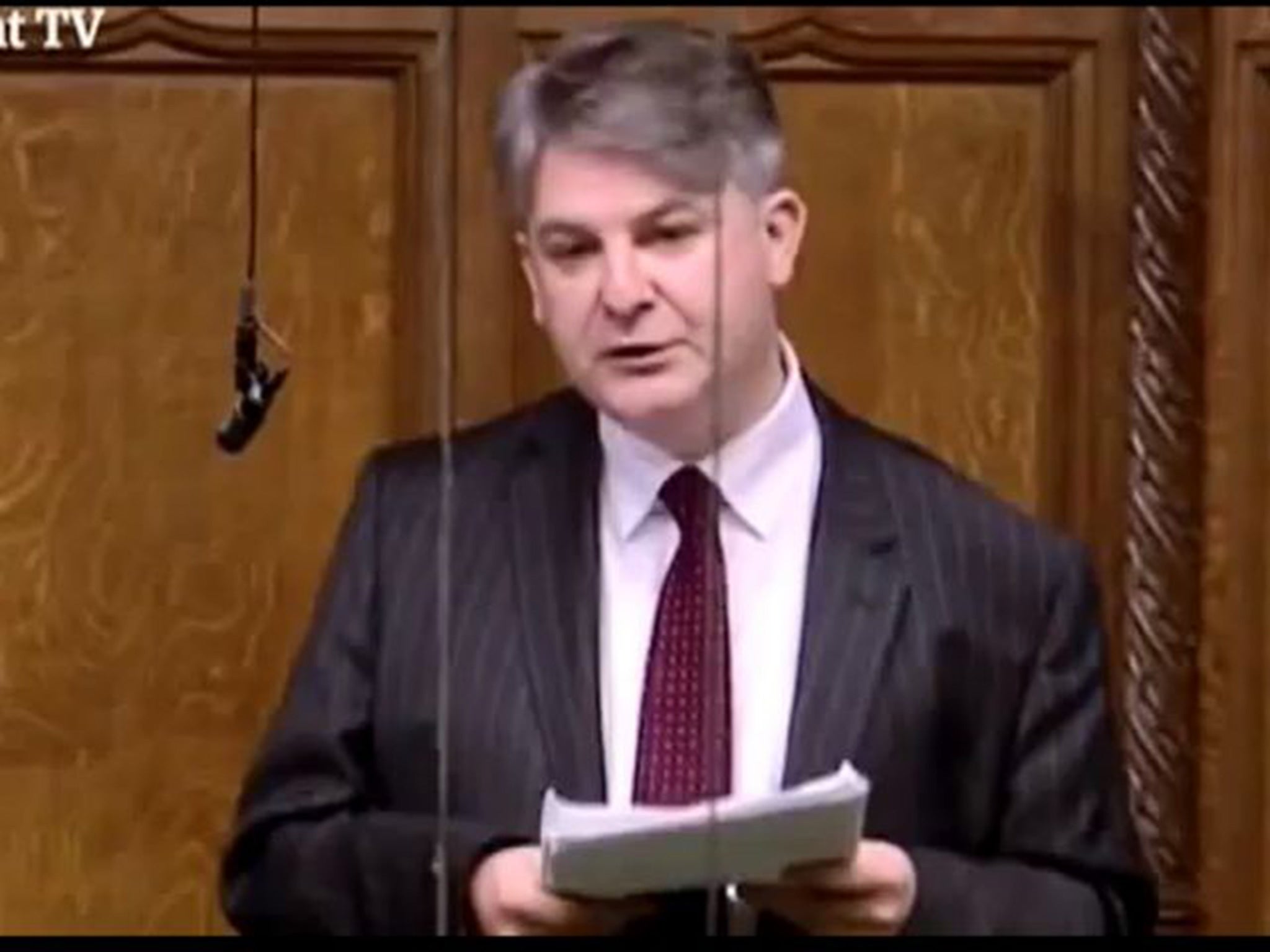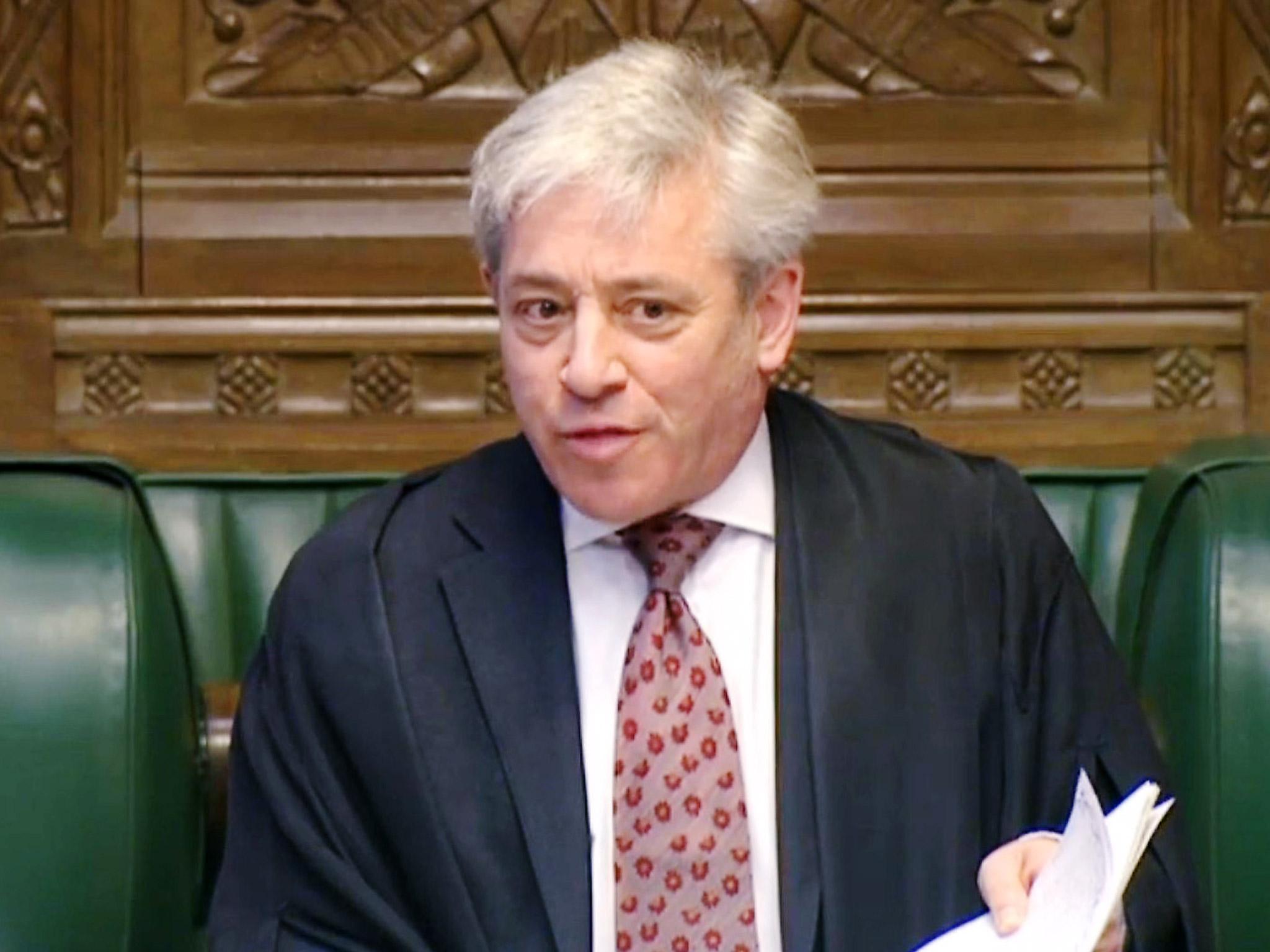Your support helps us to tell the story
From reproductive rights to climate change to Big Tech, The Independent is on the ground when the story is developing. Whether it's investigating the financials of Elon Musk's pro-Trump PAC or producing our latest documentary, 'The A Word', which shines a light on the American women fighting for reproductive rights, we know how important it is to parse out the facts from the messaging.
At such a critical moment in US history, we need reporters on the ground. Your donation allows us to keep sending journalists to speak to both sides of the story.
The Independent is trusted by Americans across the entire political spectrum. And unlike many other quality news outlets, we choose not to lock Americans out of our reporting and analysis with paywalls. We believe quality journalism should be available to everyone, paid for by those who can afford it.
Your support makes all the difference.The House of Commons Speaker should be given powers to ban MPs from blocking debates on new laws by talking non-stop for hours, an influential committee has recommended.
Under archaic parliamentary rules MPs can “filibuster” debates by making speeches that go on for hours until the time allotted for a debate runs out – meaning no vote can be held on the proposal. The tactic is ineffective against laws proposed by the Government, which usually has the power to overrule the manoeuvre. But bills proposed by backbench MPs on are almost always blocked by the tactic – usually by the same small group of right wing Conservative MPs.
Bills blocked by the strategy in recent months include a plan to abolish NHS hospital car parking charges for carers, a bill to give first aid training to children in schools, and a plan to require rented homes to be fit for human habitation. Many of these bills had cross-party support.
Now parliament’s respected Procedures Committee, which has been looking into how to overhaul the process of making backbench legislation, has proposed a number of measures to stop the practice.
“The private members’ bill process as it stands is too often an exercise in futility that manifestly misleads the public. The Government is defending procedures and practices which would not have looked out of date in the 19th century, let alone the 18th,” Charles Walker, the Conservative MP who chairs the committee, said.

“It is rare for a truly backbench bill to make it past its initial debate, let alone pass into law; they’re either handout bills or talked-out bills.
“Private Members’ bills are the only method for backbench MPs to initiate legislation, but they are no longer taken seriously due to the Government’s refusal so far to make any changes which would risk power leaving their hands for those of backbench legislators.
“The current ballot system actively works against those who aspire to be serious-minded and thoughtful backbench legislators. The chance to propose law needs to be more than purely a game of chance, as is currently the case.”
As well as plans to “explicitly authorise” the Speaker and his deputies to put time limits on filibuster speeches during private members’ bill debates, the committee says four bills should be selected for promotion in each parliamentary session.
These bills would then be prioritised for debate and stand “a real chance of becoming law”, the committee says. The overall number of bills able to be proposed by backbenchers should also be cut from 20 to 14, the committee says, as the final six bills are rarely debated anyway.
Filibusters can currently be ended by a so-called “cloture” motion that brings a speech to an end. These however require 100 MPs to pass – a number it is difficult to attain during Friday sittings when private members’ bills are debated because most representatives have returned to their constituencies.
The Government has in the past been unwilling to accept the any plans that would make parliament’s ability to propose legislation stronger. Government spokespeople have previously said the House of Commons’ procedures are a matter for the House itself.

Join our commenting forum
Join thought-provoking conversations, follow other Independent readers and see their replies
Comments